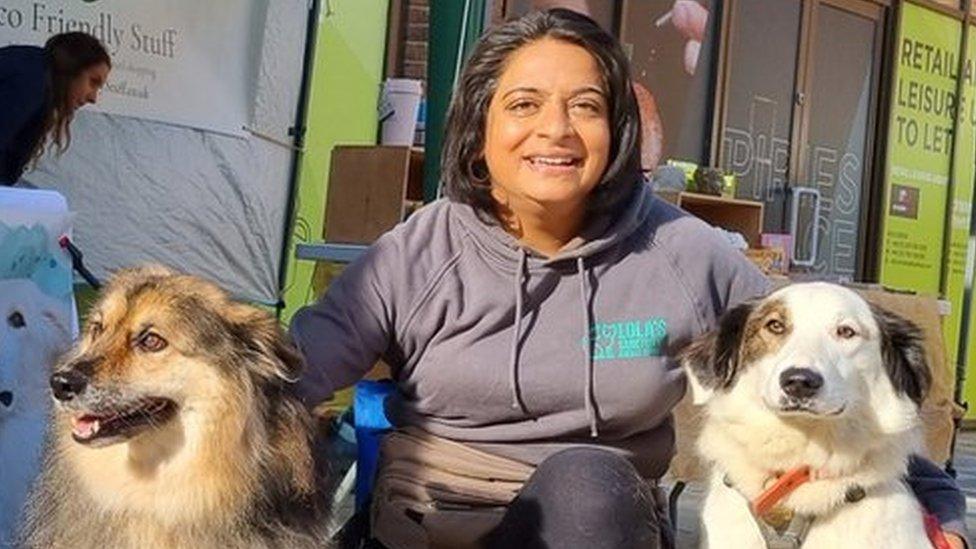Animal sanctuary sees increase in abandoned pets
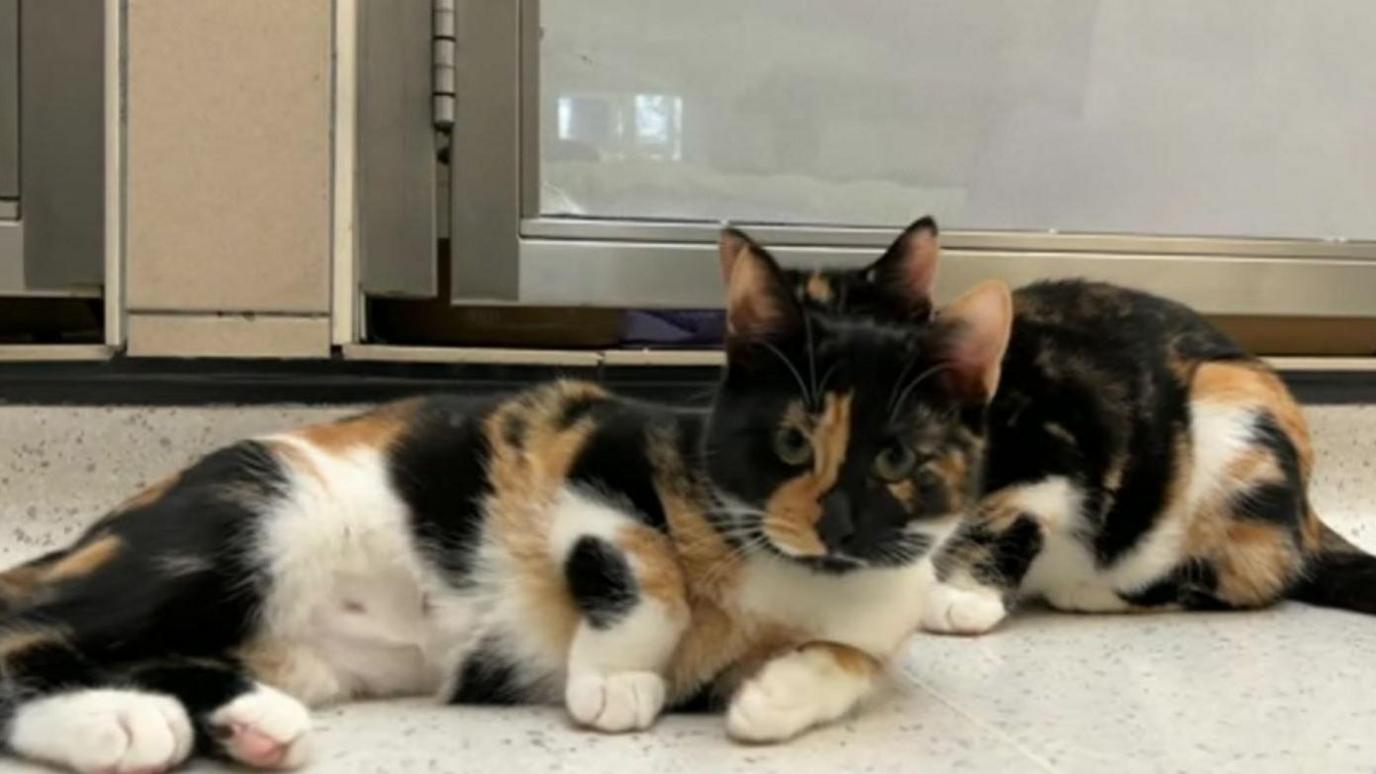
Pregnant Lily came to Raystede after being found dumped in a plastic bag
- Published
An animal welfare charity says it has seen a huge increase in the number of pets being abandoned as owners struggled to care for them because of the cost of living crisis.
Last year Raystede, in Ringmer, East Sussex, had 4,500 requests to take in pets - a record for the centre.
It is now full with a growing waiting list and the charity is urging people to come forward to provide homes for the animals in their care.
A manager at the centre described the situation as "really tricky" and a "perfect storm".
In 2023 the centre was asked to take in more than 900 cats - up 30% on the previous year.
It has just 40 spaces at the cattery.
Amber Tipler, cattery manager, said: "We're seeing surrender requests coming in every day for cats and kittens and unfortunately we can't help everybody.
"We do have to prioritise the most urgent cases. Quite often that will be if owners are being made homeless or they simply can't afford the veterinary care for their cats anymore.
"It's a really tricky situation. I think in the pandemic a lot of people got cats and now it's created the perfect storm with the cost of living crisis."
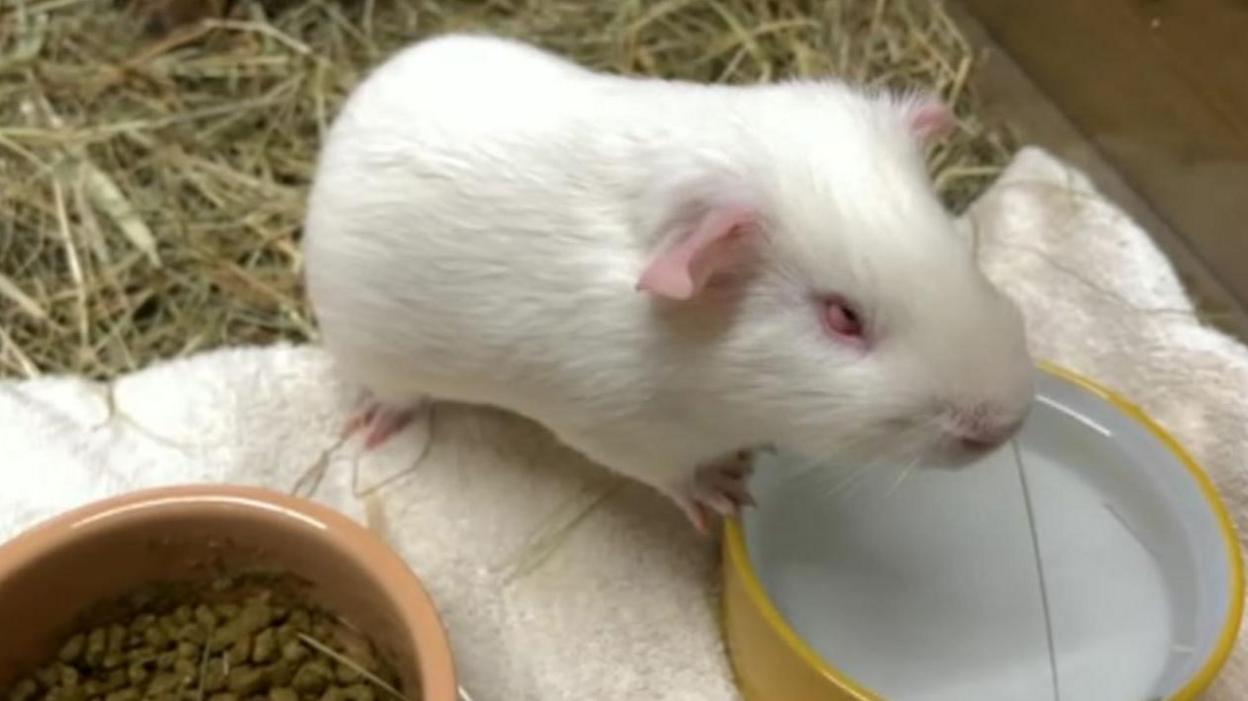
Raystede is promoting a fostering scheme for animals as its centre is full
Stephanie Smith, the charity's chief executive, said: "The cost of living crisis and the increase in energy costs have made things really difficult.
"People are finding it more and more difficult to care for their animals."
The centre is appealing for people to come forward who think they can rehome an animal, either permanently or temporarily, through their fostering scheme.
As part of the scheme the centre provides an enclosure, bedding, food and veterinary costs.
Follow BBC South East on Facebook, external, on X, external, and on Instagram, external. Send your story ideas to southeasttoday@bbc.co.uk.
Related topics
- Published23 December 2023
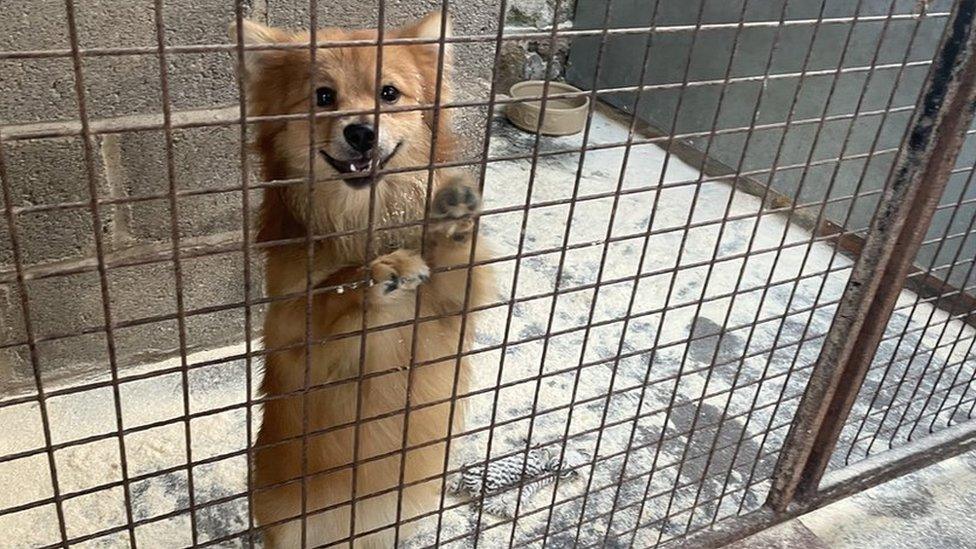
- Published17 October 2023
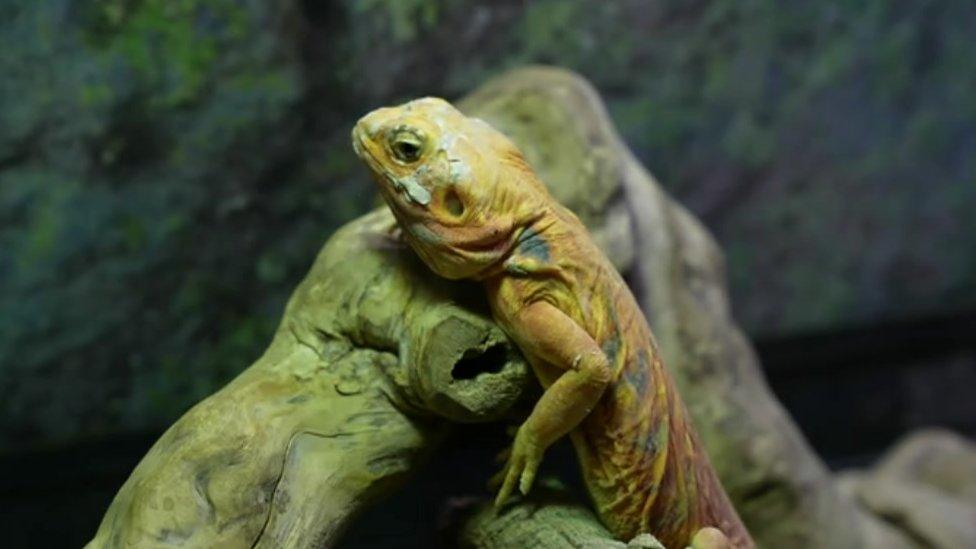
- Published29 December 2022
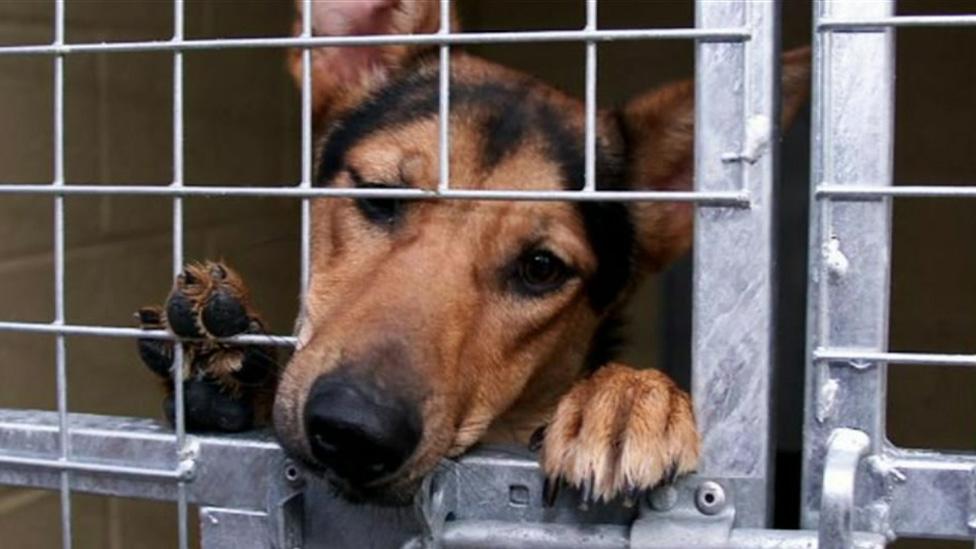
- Published27 September 2022
